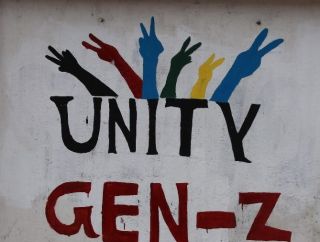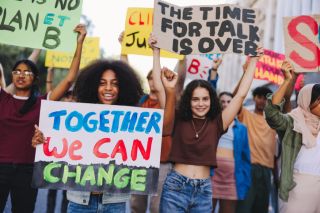Politics
Can Gen Z Transform Our Politics?
Young people in Bangladesh and America yearn for political change.
Posted October 8, 2024 Reviewed by Abigail Fagan
Key points
- In Bangladesh this year, a Gen Z-led movement toppled a government.
- Youth around the world are dissatisfied with party-based politics.
- Gen Z largely agree on the need for effective government solutions to major social challenges.
This year, 2024, may well be the year of Gen Z. A turning point as young people born in the late 1990s and early 2000s become a formidable political force, demanding much-needed changes in our world.
I am a Boomer who has seen an extraordinary series of events unfold this past summer in the country of my birth, Bangladesh.

The World's First Gen Z Revolution
In July 2024, a protest movement led by university students in Bangladesh rapidly morphed into a mass uprising resulting in the successful toppling of an authoritarian government. Today an interim government charged with organizing free and fair elections leads Bangladesh. The Chief Advisor Nobel Prize winner Muhammad Yunus has pledged to fulfill the goals of the students. And in a historic first, he has included two university student leaders in his interim cabinet.
The events in Bangladesh have been described as the “world’s first Gen Z revolution.” Indeed, there is little doubt that the character of the movement, including its success, has much to do with who young people are today – their perspectives, pastimes, inclinations and interests. These include an unprecedented level of digital immersion. In Bangladesh, students strategically used their social media savviness to organize the movement and bypass government efforts to block communications. Memes derived from Marvel movies were used to circulate information.

Gen Z Is Dissatisfied With Politics as Usual
In the United States today, we sit on the edge of our seats, waiting for an election whose outcome promises to steer the country in radically different directions. Political pundits ponder the implications of the growing numbers of young voters. They debate how young Gen Z voters will sway the needle in one direction or another.
It is important to keep in mind that the Gen Z concept, like all generational labels, can be misused when it is used to paint a homogenized picture of people who share an age range but not much else. Used by consumer branding campaigns, these labels are associated with stereotypical caricatures of how a person is supposed to be based on when they were born. The sociologist Karl Mannheim reminds us that not all age cohorts have a shared political consciousness and identity. The formation of a “political generation” begins when those of a particular age share a notable history and set of experiences during the formative years of their lives. It only gains meaning, however, when the age cohort actively recognizes and cultivates a collective identity around their unique experiences and political concerns.
We are in a period of widespread youth disillusionment with the political status quo. Despite the profoundly different contexts, there are some uncanny similarities between the perspectives of youth in Bangladesh and the United States. The July uprising in Bangladesh revealed widespread youth dissatisfaction with party-centered politics coupled with indifference if not hostility towards the country’s dominant political parties. Prior to the events of the summer, political engagement among young people centered around specific issues, such as demands for greater road safety and the abolition of quotas for government jobs.
Similar findings are reported in the United States. Melissa Deckman, the author of The Politics of Gen Z: How the Youngest Voters Will Shape Democracy, reports that young people are critical of the two major political parties and less partisan than their older counterparts. They are more likely to say they are independent or belong to no party.
As in Bangladesh, Gen Z Americans are interested in addressing specific issues rather than defending a party position. Whether or not they identify as liberal or conservative, they agree on the need for effective government solutions to major social challenges. The disagreements over more or less government intervention that underlie the polarized American political landscape of today are less visible amongst them.
Gen Z Americans are the most racially diverse generation of Americans to date. They tend to hold a liberal stance on a wide range of social issues, from racial justice and LGBTQ+ rights to climate change. However, there are reports of a growing gender divide in which young women are more likely to embrace progressive positions than men. These accounts are a clear reminder of the dangers of over-generalizing about those who happen to be born at a similar time.
Still, whatever their political stance, young people today do gravitate towards novel forms of political engagement. These are frequently social media based. Online posts and petitions and boycotts of brands and artists are all important and potentially impactful activities.
Gen Z Votes Matter in a High-Stakes Election
Today we are faced with a high-stakes election. In these circumstances, getting out to vote is the most impactful action Gen Z Americans can take. Right now, it is their presence at the polls that will make a difference.

In Bangladesh, it was the tragic absence of democracy that drove young people to brave police gunfire and arrest and take to the streets to make their demands. They did not have the privilege of expressing their desires and visions through the ballot box in a free and fair election. In the United States, however, this opportunity exists.
My Boomer mind goes to a classic 1968 Beatles tune "You Say You Want a Revolution". My Gen Z daughter tells me with an air of boredom she has never heard of the song. I reply with feeling, "You want to change the world, right? Start by voting in November."




